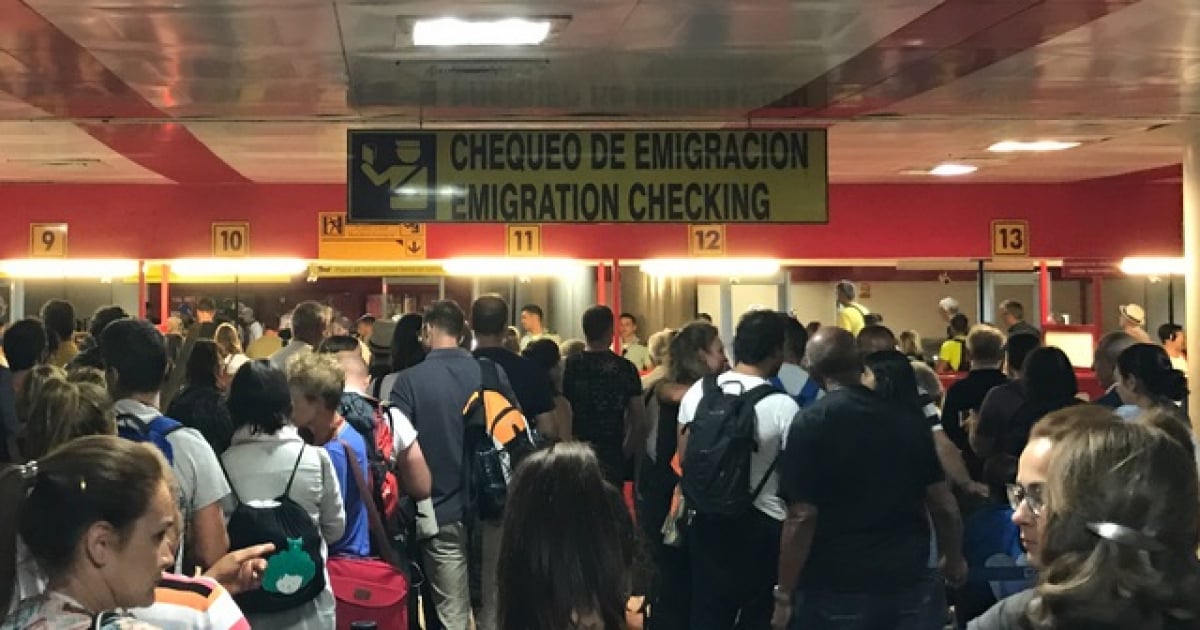
The Cuban government established the treatment for entries and exits from the country through the publication, this Monday by the National Assembly of the People's Power, of a draft Migration Law.
The document presented by the Cuban legislative body does not show significant changes to the behaviors currently practiced; however, it indicates the values that the authorities consider to allow entry and exit to the national territory, which takes place from the available international ports and airports for such activities.
To do this, as is currently the case, a valid passport or equivalent document issued in the name of the traveler must be presented, as well as an identity card or a minor's card as a temporary, permanent, real estate, humanitarian, or provisional resident.
Foreigners not residing in the country must apply for an entry visa, unless they are citizens of a country that has agreements for exemption from this document with the Ministry of Foreign Affairs of the island.
Based on these requirements, the document specifies some conditions that regulate entry and exit to the country.
It mentions that for the purposes of entering the national territory, a person may be deemed inadmissible if they have a background linked to activities such as terrorism, human trafficking, and the illicit trafficking of migrants, as well as drug-related offenses, money laundering, or the illegal possession or carrying of weapons, or other acts condemned at the international level.
Also, those individuals linked to acts harmful to humanity, dignity, or public health will not be able to access Cuba.
They classify as inadmissible those who organize, encourage, or participate in hostile actions against the political, economic, and social foundations of the Cuban state. This is a shaky point in the interpretations of immigration officials and State Security.
A similar condition occurs with the numerals that indicate that entry may be subject to prohibition for reasons of National Security and Defense, or for being declared undesirable or expelled. However, in these last two cases, exceptions may be made if there are humanitarian reasons, public interest, or if state institutions advise doing so.
Meanwhile, one of the points that attracts the most attention is that of leaving the country, one of the most violated by the Cuban regime, due to the discretion with which it is enforced by the authorities.
According to the document, any person who is in the national territory cannot leave the country while they are included in any of the following points:
- To be subject to criminal proceedings or any other matter, provided that the authorities have mandated the precautionary measure of prohibition from the national territory.
- To have pending the compliance with a criminal sanction in which the prohibition of leaving the country is an accessory sanction.
- To be subject to the provisions of the Mandatory Military Service.
- When reasons of National Security and Defense advise it.
- They have obligations to the Cuban state or civil responsibility, as long as they have been established by the relevant authorities.
- Lack of the established authorization, under the rules aimed at preserving the qualified workforce for the economic, social, and scientific-technical development of the country.
- Lacking the established authorization, but in order to preserve the safety and protection of official information.
- Minors without parental authorization.
- When the authorized authorities determine it for other reasons of public interest.
- It breaches what is stipulated in the Migration Law, the Foreigners Law, and their respective regulations.
They add that individuals who have any type of these notifications will be informed at the port of entry, when they are in the country or by other appropriate means.
The document published by the National Assembly also raises other changes such as the possible elimination of the 24-month stay abroad and the designation of migrant for this reason.
The government stated that the goal of publicizing the draft laws is "to promote citizen participation and contribute to the legal culture" of Cubans.
According to the official agency Prensa Latina, "these legislative proposals will be subject to analysis and discussion by the deputies, with a view to their timely presentation in the Cuban Parliament."
What do you think?
SEE COMMENTS (1)Filed under: